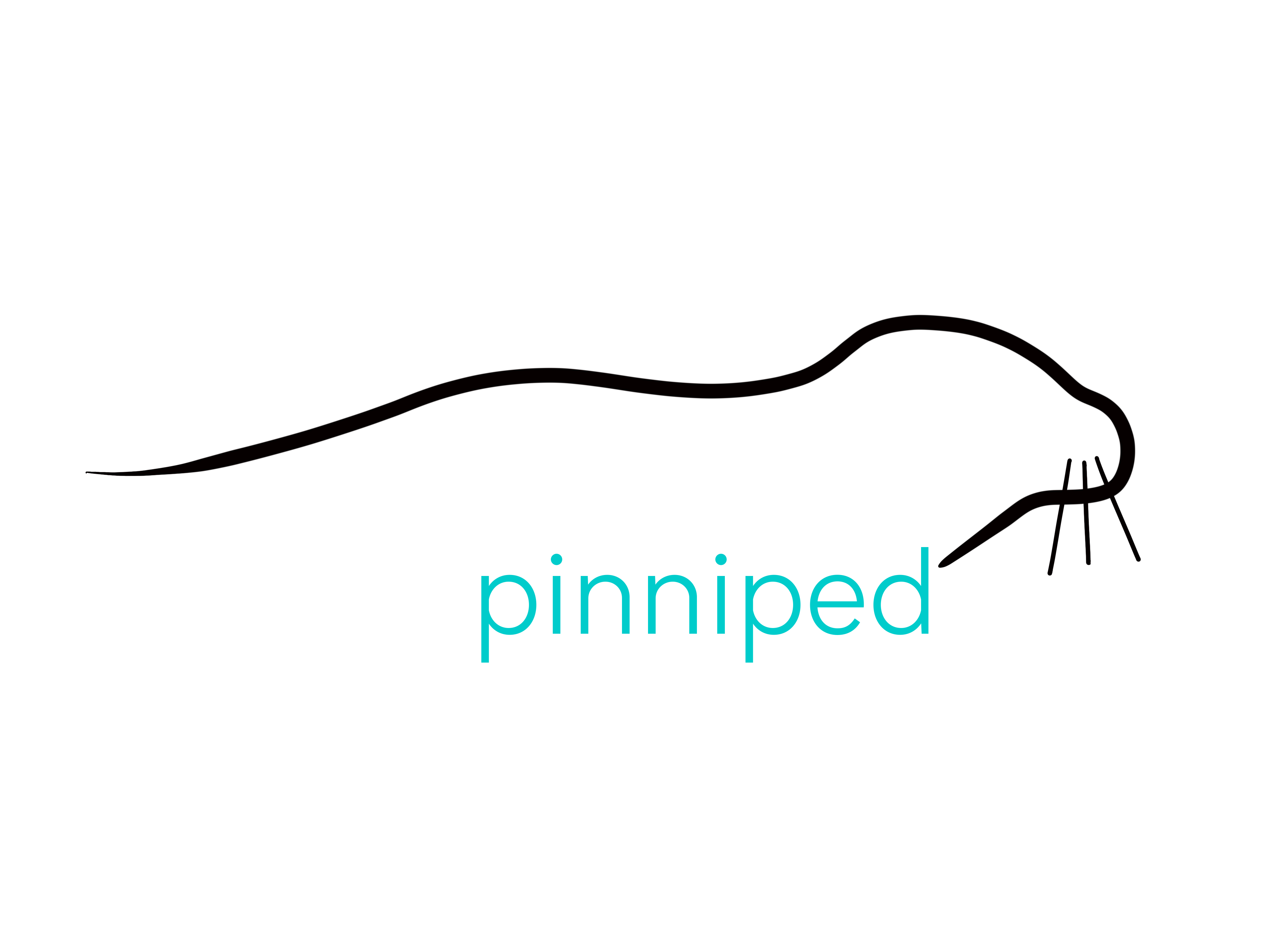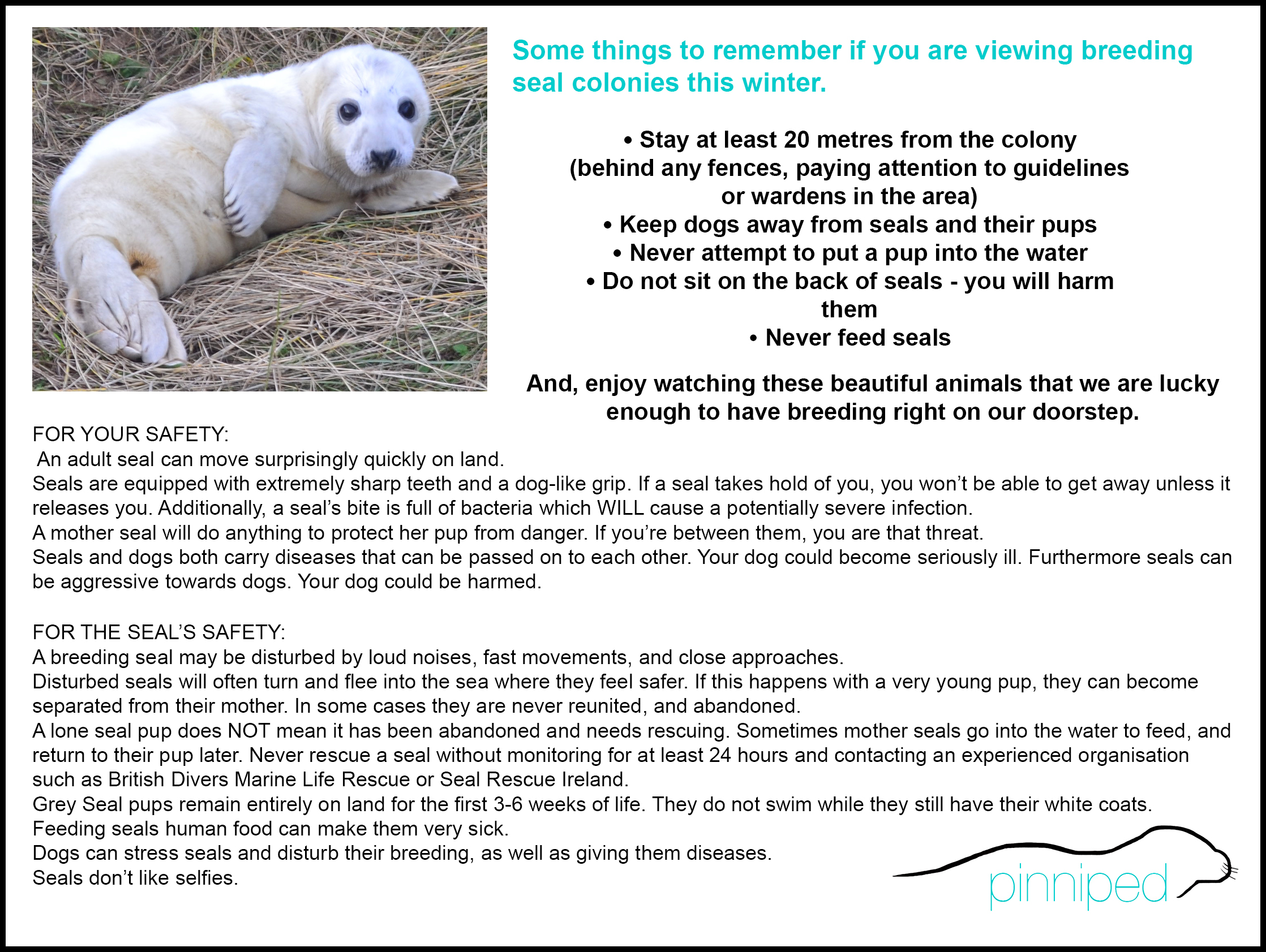If you live nearby much of the vast coastline of the British Isles, you may be lucky enough to see large seals hauled out during this time of year, often in groups, on beaches and shores. These are Grey Seals (Halichoerus grypus) and the reason for this migration to land is the breeding season. Seals are semiaquatic, and while they spend much of their time happily foraging and existing in water, they must return to land to pup and nurse their young.
You will very likely have heard of Grey Seal pups before, these are the white-coated, cuddly-looking creatures with big eyes. Even as we write, the first individuals have been born, and are laying vulnerable on the beach, unable to get into the sea with their fluffy white jackets. And this is the reason for our blog.
During this initial period, Grey Seal pups are extremely sensitive to disturbance. In recent years, people have begun flocking to view these babies as they nurse on the sand, and while we encourage people to get out and enjoy wildlife, there has been a worrying trend for some extremely irresponsible behaviour at the colonies including: trying to feed them bread (at this stage the pups solely survive on their mother’s milk, like humans), throwing rocks and stones at them, sitting right beside them for selfies, and even trying to ride them. To most of us this seems preposterous, but there are people out there who are completely ignorant about nature. Those people will never read our blog so we ask the rest of you to join us in being vigilant to catch and report any such behaviour. Despite various national and international wildlife laws, we don’t believe that seals have the adequate protection necessary in the UK and Ireland; protection from being unlawfully killed, protection from being disturbed at their breeding or moulting site, and protection for key prey species in their critical range. The British Isles are a real stronghold for Grey Seals, and it is our responsibility and duty to protect them and encourage a thriving population.
Some things to remember if you are viewing breeding seal colonies this winter:
For YOUR safety –
An adult seal can move surprisingly quickly on land.
Seals are equipped with extremely sharp teeth and a dog-like grip. If a seal takes hold of you, you won’t be able to get away unless it releases you. Additionally, a seal’s bite is full of bacteria which WILL cause a potentially severe infection.
A mother seal will do anything to protect her pup from danger. If you’re between them, you are that threat.
Seals and dogs both carry diseases that can be passed on to each other. Your dog could become seriously ill. Furthermore seals can be aggressive towards dogs. Your dog could be harmed.
For the seal’s safety –
A breeding seal may be disturbed by loud noises, fast movements, and close approaches.
Disturbed seals will often turn and flee into the sea where they feel safer. If this happens with a very young pup, they can become separated from their mother. In some cases they are never reunited, and abandoned.
A lone seal pup does NOT mean it has been abandoned and needs rescuing. Sometimes mother seals go into the water to feed, and return to their pup later. Never rescue a seal without monitoring for at least 24 hours and contacting an experienced organisation such as British Divers Marine Life Rescue in the UK, or Seal Rescue Ireland in the Republic of Ireland.
Grey Seal pups remain entirely on land for the first 3-6 weeks of life. They do not swim while they still have their white coats.
Feeding seals human food can make them very sick.
Dogs can stress seals and disturb their breeding, as well as giving them diseases.
Seals don’t like selfies.
In a nutshell –
- Stay at least 20 metres away from the colony, behind any fences, and pay attention to any guidelines or wardens on the beach or viewing area.
- Keep dogs away from seals and their pups.
- Never attempt to put a pup into the water.
- Do not sit on the back of seals – you will harm them.
- Never feed seals.
Finally, enjoy watching these beautiful animals that we are lucky enough to have breeding right on our doorstep.


